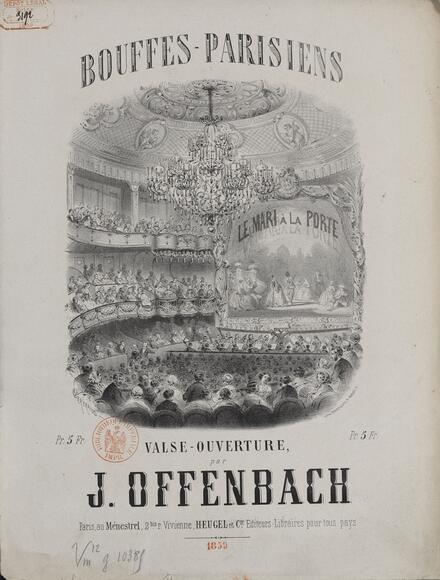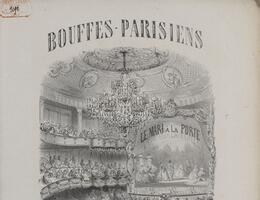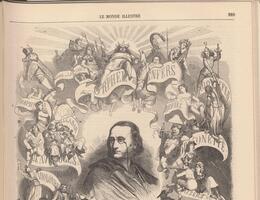Un mari à la porte

Operetta in one act premiered on 22 June 1859 at the Théâtre des Bouffes-Parisiens (Salle Lacaze).
Although Offenbach was now authorised to write operas comprising several acts, he chose to revisit the concise genre of early works such as Croquefer, Tromb-al-ca-zar and Ba-ta-clan when composing Un mari à la porte. Like those works, this operetta combined a simple but effective libretto with simple, effective music. The plot is reminiscent of that of the vaudevilles by Labiche, the new star of Parisian theatre. Suzanne argues with her husband on her wedding night. At that point, Florestan Ducroquet, a poet and musician appears down the chimney. He is on the run from a jealous husband who is also his creditor. The fugitive soon realises that the bailiff charged with recovering his debts is none other than Suzanne’s husband, Henri. A farcical scene ensues, with Florestan and Suzanne trying to escape from the room while Henri bangs on the door. Suzanne’s maid of honour, Rosita, who had arrived earlier to help her friend, proves to be the solution to all their problems: she marries Florestan, whose aunt now settles all his debts. The music was acclaimed by the press: L’Illustration of 9 July 1859 praised “a great many delightful pieces which are lively, yet at the same time witty, subtle, elegantly written, and conducted with a great deal of skill”. The score includes a particularly popular colourful number: the Tyrolean waltz “J’entends ma belle”, sung by Rosita just before Florestan’s deafening arrival.


